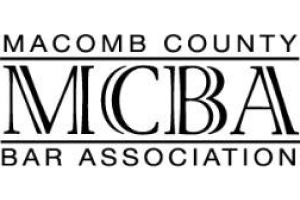- Free Consultation: (586) 264-3756 Tap Here to Call Us
FOC Recommendation-Objections
The Michigan Court Rules allow a family law judge to delegate his/her authority to a referee for recommendations regarding custody, parenting time and child support disputes. The referee essentially has the same authority as a judge to hear evidence and make a ruling on but the ruling is not final. . . it is merely a recommendation. Usually, either party has 21 days to object to the recommendation (some counties such as Macomb will reduce the objection period to 7 days in cases where the recommendation is made the same day as the hearing); if no one objects, the recommendation is ultimately signed by the judge and becomes the order of the court. Thereafter, you can only challenge the ruling if you encounter a substantial change in circumstances.
It is important to note that the referee hearing is only a preliminary step in the process. While judges do give some level of deference to the referee recommendations, the judge has an obligation to hear all of the evidence related to a custody, parenting time or child support dispute if one of the parties objects to the referee recommendation. At the referee hearing, you may submit documentary evidence to support your position but other than the parties, there will not usually be testimony (a full scale trial type investigation can be ordered by the judge but is not the usual procedure). The referee’s function is to try and make a recommendation that best fits the situation at hand so as to bring the matter to resolution and avoid protracted litigation. However, if you do not like the recommendation, you may file your objection and then the matter will be set for a hearing by the judge.
I have frequently objected to referee recommendations because my client felt that the referee missed an important fact (or facts). As stated, the referee hearing is not usually a full trial so once your matter is scheduled for a full evidentiary hearing before the judge, you will be expected to come forward with all of your evidence (i.e. witnesses, documents, etc.). So, if you are not happy with a referee recommendation, all is not lost. You will have your day in court and it is very possible to convince a judge that the referee’s recommendation was not in the best interests of the children.
I do often get phone calls or even referrals from people after their referee hearing. People will sometimes attend the referee hearing without an attorney which I believe is a mistake. Referees (and judges for that matter) do not always respond to a lay person’s argument and it is easy for a lay person to become intimidated by the process. Many times people will tell me they did not get a chance to make all of their points because the referee cut them off. So, I feel strongly that if you do have a custody, parenting time or child support dispute, that you should contact me for a free consultation and ensure that you and your children’s rights are being protected.
Related Posts: Holiday Parenting Time, Best Interest Factors: What are they?, What is “proper cause” to challenge custody?, What is an established custodial environment?











